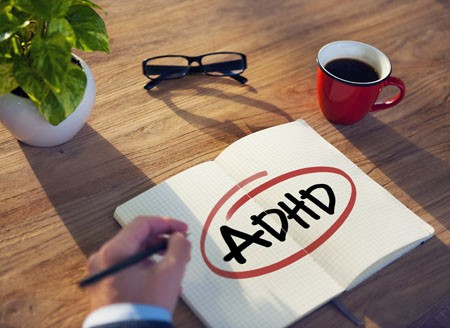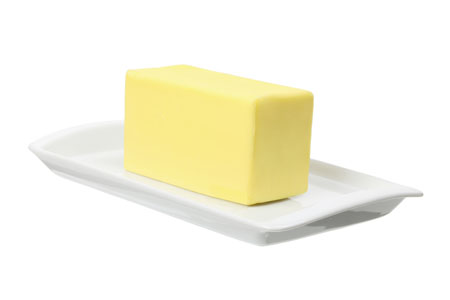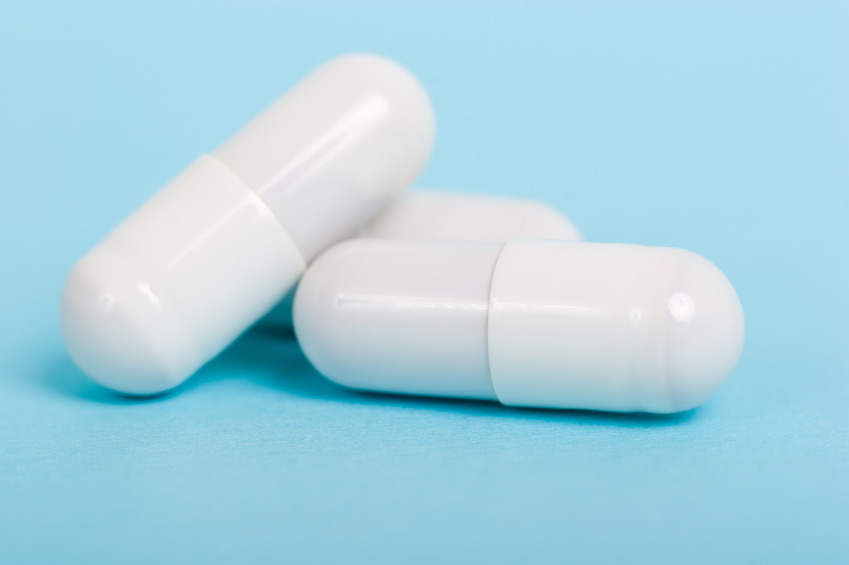SNRI Viloxazine May Be Reintroduced as ADHD Treatment
The pharmaceutical company Supernus identifies older drugs that may be repurposed to treat other disorders. The company believes it may have found a new use for the discontinued antidepressant viloxazine, as a treatment for attention deficit hyperactivity disorder (ADHD).
Viloxazine is a selective norepinephrine reuptake inhibitor, or SNRI, that was approved in Europe but not in the US and was eventually removed from the market due to competition from other drugs. Its structure and mechanism of action resemble those of the ADHD treatment atomoxetine, so Supernus has begun trials of viloxazine for ADHD in adults.
At the 2015 meeting of the American Academy of Child and Adolescent Psychiatry, the researchers reported that compared to placebo, viloxazine was about twice as likely to reduce ADHD symptoms. Side effects included nausea, decreased appetite, headache, and insomnia. Supernus hopes to create an extended release form of the drug for both adults and children.
Guanfacine Improves ADHD Symptoms and Academic and Social Functioning in Children
A study by researcher J.H. Newcorn and colleagues published in the Journal of the American Academy of Child and Adolescent Psychiatry in 2013 found that eight weeks of treatment with the drug guanfacine (extended release) improved symptoms of attention deficit hyperactivity disorder (ADHD) in North American children compared to placebo. A 2015 study by M.A. Stein and colleagues in the journal CNS Drugs extended this research, determining that guanfacine also improved academic and social functioning, including family dynamics, in the same group of children.
Children aged 6–12 who had been diagnosed with ADHD received either placebo or 1 to 4 mg of guanfacine extended release either in the morning or evening. The children in both guanfacine groups showed improvements in family interactions, learning and school, social behavior, and risky behavior compared to those taking placebo. No improvements were seen in life skills or self-concept. The improvements in functioning were linked to the drug’s effectiveness in improving ADHD symptoms. Those children whose ADHD symptoms improved on guanfacine were also more likely to see improvements in academic and social functioning.
Stimulants Linked to Psychotic Symptoms in Offspring of Parents with Psychiatric Illness
Stimulants are one of the most common medications prescribed to children and adolescents, typically for attention deficit hyperactivity disorder (ADHD). In children of parents with major depression, bipolar disorder, or schizophrenia, stimulant use may come with a risk of psychotic symptoms. A 2016 study by L.E. MacKenzie and colleagues in the journal Pediatrics reported that among children and youth whose parents had one of these psychiatric illnesses, 62.5% of those who had taken stimulants had current psychotic symptoms, compared to only 27.4% of those who had not taken stimulants. The participants with psychotic symptoms tended to have hallucinations that occurred while they were taking stimulants. Doctors may want to consider whether parents have a history of psychiatric illness when deciding whether to prescribe stimulants to children and adolescents with ADHD. Activation is a common side effect of antidepressants in children who have a parent with bipolar disorder. Young people taking stimulants for ADHD should be monitored for psychotic symptoms, particularly if they have a parent with a history of depression, bipolar disorder, or schizophrenia.
Surprisingly, Adult ADHD Is Distinct From Childhood ADHD
In a longitudinal study of 1,037 people born in Dunedin, New Zealand in 1972 and 1973, most participants with attention deficit hyperactivity disorder (ADHD) in adulthood did not have the disorder as children. The study by Terrie E. Moffitt and colleagues in the American Journal of Psychiatry is the first prospective longitudinal study to describe the childhood of adults with ADHD.
When the study participants were children, about 6% were diagnosed with ADHD (mostly males). These children also had comorbid disorders, neurocognitive deficits, multiple genes associated with risk for ADHD, and some life impairment when they reached adulthood.
In adulthood, about 3% of the participants had ADHD (roughly equal between men and women), and 90% of these participants had no history of ADHD in childhood. The participants with ADHD in adulthood also had substance dependence and life impairment, and had sought treatment for the disorder. The researchers were surprised to find that these participants with adult ADHD did not show neuropsychological deficits in childhood, nor did they have the genetic risk factors associated with childhood ADHD.
If the findings of this study are replicated, researchers will have to rethink the current classification of ADHD as a neurodevelopment disorder that begins in childhood, and begin to determine how adult ADHD develops.
Editor’s Note: Before the publication of this article, most investigators (including this editor Robert M. Post) thought that virtually all ADHD in adulthood evolved from the childhood disorder, and if it did not begin in childhood, the diagnosis was suspect. I still believe the ADHD that appears in adulthood in patients with bipolar disorder is likely attributable to residual depression and anxiety or hypomania and that more concerted treatment of the patient to full remission will often result in much better attention, concentration, and ability to follow through and stay on task.
Omega-3 Fatty Acids Improve Attention in Boys
A new study finds that omega-3 fatty acid supplementation improves attention in boys both with and without attention deficit hyperactivity disorder (ADHD). The study by Dienke J. Bos and colleagues in the journal Neuropsychopharmacology included 40 boys (aged 8–14) with ADHD and 39 demographically matched controls. Participants were given 10 g per day of margarine supplemented with either omega-3 fatty acids (eicosapentaenoic acid (EPA) and docosahexaenoic acid (DHA)) or placebo.
The children who received EPA/DHA supplementation showed improvements in attention (as rated by parents) compared to those who received placebo. Improvement was greater in the children with ADHD. Supplementation did not affect cognitive control or brain activity on functional magnetic resonance imaging (fMRI). Those boys who received omega-3s showed higher DHA levels on followup.
ADHD and Bipolar Disorder Are Inherited Separately
While attention-deficit hyperactivity disorder (ADHD) is fairly common among people with bipolar disorder, the genetic risks of inheriting these two illnesses run separately in families. In a recent study of 465 people and 563 of their first-degree relatives by Susan Shur-Fen Gau and colleagues, people with bipolar I disorder were likely to have relatives with bipolar I disorder, and people with ADHD were likely to have relatives with ADHD, but ADHD did not increase risk of bipolar disorder and vice versa.
The researchers hypothesize that other reasons people might develop both disorders include developmental precursors to the illnesses, neurocognitive functioning, sleep problems, and personality traits such as impulsivity and disinhibition.
Editor’s Note: At a recent scientific meeting, Gau and her colleague Kathleen Merikangas said that people with bipolar disorder in the study were five times more likely to have relatives with bipolar disorder. Bipolar disorder and ADHD were comorbid in 37.8% of those with bipolar I disorder, 16.4% in bipolar II disorder, 14% in depression, and 1.1% in normal controls.
Multivitamin and Mineral Preparations for Childhood Bipolar Disorder
 Researcher Charles Popper gave a talk at the 2014 meeting of the American Academy of Child and Adolescent Psychiatry on the benefits of nutritional supplements designed to provide multiple vitamins and minerals to children with bipolar disorder and other dyscontrol syndromes, such as attention deficit hyperactivity disorder (ADHD) and oppositional defiant disorder. Popper reviewed the literature on the substantial incidence of vitamin and mineral deficiencies among these children.
Researcher Charles Popper gave a talk at the 2014 meeting of the American Academy of Child and Adolescent Psychiatry on the benefits of nutritional supplements designed to provide multiple vitamins and minerals to children with bipolar disorder and other dyscontrol syndromes, such as attention deficit hyperactivity disorder (ADHD) and oppositional defiant disorder. Popper reviewed the literature on the substantial incidence of vitamin and mineral deficiencies among these children.
A modicum of data support the effectiveness of supplements for children with these disorders. One of these supplements is called EMPowerPlus and is sold online. It is moderately expensive and must be given under the supervision of a knowledgeable treating physician. While it is relatively safe in medication-free children, Popper says it can exacerbate withdrawal reactions from some psychotropic medications.
In addition, EMPowerPlus greatly increases lithium-related side effects, in patients taking lithium, the dose must be reduced to about one-tenth of a normal dose for those who are adding EMPowerPlus.
Popper and another researcher, Mary Fristad, have both seen excellent responses to this type of supplementation in children with bipolar disorder who have been unresponsive to more traditional drugs.
In another study by Rita Aouad et al., 72.3% of 980 children with a variety of psychiatric diagnoses had insufficient vitamin D levels (values < 30 nanograms/ml) and 26.7% had vitamin D deficiency (values < 20 nanograms/ml). These data support the rationale for vitamin D supplementation, especially in those who have low levels to start with.
Differentiating ADHD and Bipolar Disorder
Three articles in the September 2014 issue of the journal Psychiatric Annals (Volume 44 Issue 9) discussed differentiating pediatric bipolar disorder from attention deficit hyperactivity disorder (ADHD). The first article, by Regina Sala et al., said that reasons to suspect bipolar disorder in a child with ADHD include:
- The ADHD symptoms appear for the first time after age 12.
- The ADHD symptoms appear abruptly in an otherwise healthy child.
- The ADHD symptoms initially responded to stimulnts and then did not.
- The ADHD symptoms come and go and occur with mood changes.
- A child with ADHD begins to have periods of exaggerated elation, grandiosity, depression, decreased need for sleep, or inappropriate sexual behaviors.
- A child with ADHD has recurring severe mood swings, temper outbursts, or rages.
- A child with ADHD has hallucinations or delusions.
- A child with ADHD has a strong family history of bipolar disorder in his or her family, particularly if the child does not respond to appropriate ADHD treatments.
The second article, by this editor Robert Post, Robert Findling, and David Luckenbaugh, emphasized the greater severity and number of symptoms in childhood onset bipolar disorder versus ADHD. Children who would later develop bipolar disorder had brief and extended periods of mood elevation and decreased sleep in the early years of their lives. These, along with pressured speech, racing thoughts, bizarre behavior, and grandiose or delusional symptoms emerged differentially from age three onward. In contrast, the typical symptoms of ADHD such as hyperactivity, impulsivity, and decreased attention were equal in both diagnoses.
In the third article, Mai Uchida et al. emphasized the utility of a family history of bipolar disorder as a risk factor. Moreover, a child with depression plus ADHD is at increased risk for a switch into mania on antidepressants if there is a family history of mood disorders, emotional and behavioral dysregulation, subthreshold mania symptoms, or psychosis.
The differential diagnosis of ADHD versus bipolar disorder (with or without comorbid ADHD) is critical, as drug treatment of these disorders is completely different.
Bipolar disorder is treated with atypical antipyschotics; anticonvulsant mood stabilizers, such as valproate, carbamazepine, or lamotrigine; and lithium. Only once mood is stabilized should small doses of stimulants be added to treat residual ADHD symptoms.
ADHD, conversely, is treated with short- or long-acting stimulants such as amphetamine or methylphenidate from the onset, and these may be augmented by the noradrenergic alpha-2 agonists guanfacine or clonidine. The selective noradrenergic re-uptake inhibitor atomoxetine is also approved by the Federal Drug Administration (FDA) for the treatment of ADHD. The dopamine-active drug bupropion and the anti-narcolepsy drugs modafinil and armodafinil have mild anti-ADHD effects but have not been FDA-approved for that purpose.
Differentiating Bipolar Disorder and ADHD in Childhood
At the 2014 meeting of the International Society for Bipolar Disorders, researcher B.N. Kim discussed symptoms that could distinguish between bipolar disorder and attention deficit hyperactivity disorder (ADHD) in childhood. Both disorders are characterized by decreased attention, concentration, and frustration tolerance, and increased activity, impulsiveness, and irritability.
Kim shared several differential symptoms that are more indicative of a bipolar diagnosis and that are inconsistent with a simple ADHD diagnosis (and this editor Robert Post has added several more). Signs and symptoms that suggest bipolar disorder and not ADHD include: decreased need for sleep, brief and extended periods of euphoria, hypersexuality, delusions, hallucinations, suicidal or homicidal impulses and/or actions, extreme aggression, and multiple areas of extreme behavioral dyscontrol. ADHD, on the other hand, is characterized by more difficulty focusing attention, and by less extreme symptoms in general.
Micro-Nutrient Product Effective in Adult ADHD
EMPowerPlus is a nutritional supplement marketed by the company Truehope as a way of correcting nutritional deficiencies that contribute to depression, anxiety, bipolar disorder, and attention-deficit hyperactivity disorder (ADHD). In 2014 Rucklidge et al. published the first controlled study of EMPowerPlus in the British Journal of Psychiatry showing that the supplement was more effective than placebo in adults with untreated ADHD.
EMPowerplus contains 36 ingredients, including 14 vitamins, 16 minerals, 3 amino acids, and 3 antioxidants. Patients were randomized to receive either 15 EMPowerPlus pills per day or 15 placebos per day for 8 weeks, and those patients receiving the supplement were rated as more improved by the end of the study. Effect sizes were moderately robust and side effects did not differ.
Editor’s Note: Multiple uncontrolled studies have suggested the efficacy of EMPowerPlus in childhood mania and related conditions, but this is the first formal placebo-controlled study of the supplement in adults with ADHD. A study in children with ADHD is planned, but it would also be important to study this micronutrient formulation in childhood bipolar disorder, where there is some anecdotal evidence (from Charles Popper at McLean Hospital in Boston and Mary Fristad at the Ohio State University) of excellent responses in children with highly treatment-resistant bipolar illness.










